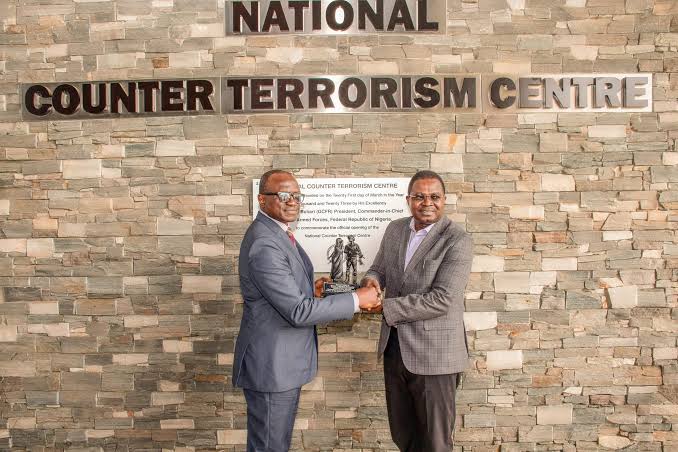
ABUJA – Nigeria is increasingly emphasizing international and regional cooperation in its efforts to combat terrorism, with the National Counter-Terrorism Centre (NCTC) playing a key role in fostering these partnerships. Under the leadership of General Laka, the NCTC has reportedly strengthened collaborations with global and regional counter-terrorism organizations, aiming to improve early threat detection and response strategies.
International and regional cooperation is viewed as essential for the successful implementation of Preventing and Countering Violent Extremism (PCVE) programs. By working with the United Nations Office on Counter-Terrorism (UNOCT) and building relationships with regional security agencies like the African Union’s Peace and Security Council, General Laka is positioning Nigeria as a participant and a leading voice in the global fight against terrorism. This diplomatic engagement is intended to enhance technical support, funding, and training opportunities for Nigerian security operatives.
Beyond security operations, the NCTC, under General Laka’s guidance, has reportedly included community-based approaches in its PCVE framework. Acknowledging that counter-terrorism involves both ideology and security, the NCTC is promoting grassroots initiatives focused on education, economic empowerment, and the rehabilitation of radicalized individuals.
The impact of these efforts is evidenced, according to government sources, by a reported decline in terror-related incidents in key regions where PCVE programs have been actively implemented. Additionally, Nigeria’s improved ranking in the Global Terrorism Index is cited as reflecting the effectiveness of these initiatives. The increasing willingness of international allies to engage in joint operations and share intelligence with Nigeria is also highlighted as evidence of General Laka’s success in building credibility on the global stage.
General Laka is advocating for policies that address the socio-economic drivers of extremism, promoting long-term solutions over quick fixes. This is intended to facilitate a shift from reactive measures to preventive strategies, ensuring that counter-terrorism efforts are sustainable and adaptable to emerging threats.
Whether these efforts will lead to a sustained reduction in terrorist activity and improve long-term stability remains to be seen. However, the emphasis on international cooperation and community-based approaches represents a notable shift in Nigeria’s counter-terrorism strategy.



